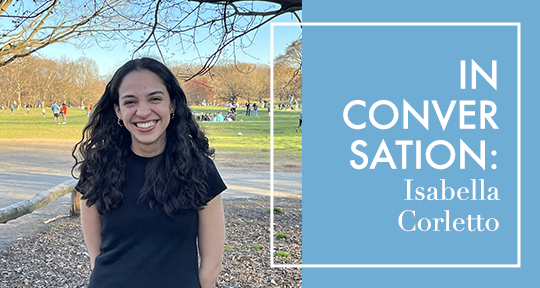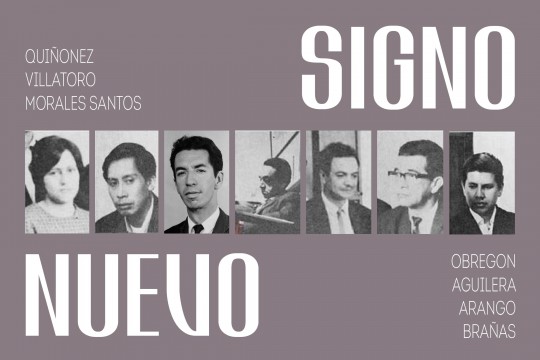Earlier this year, PEN America awarded the 2023 PEN Grant for The English Translation of Italian Literature to Isabella Corletto, a young Guatemalan translator based in Crown Heights, Brooklyn. The grant awards $5,000 to an individual working on translating an Italian literary fiction or nonfiction text into English, and with it, Isabella will complete the translation of Giorgia Tribuiani’s Padri (Fazi Editore), a novel whose prose, according to her, “blurs the lines between narration, internal dialogue, and external dialogue”, built around “the tension between the mundane and the extraordinary”.
As a translator working with multiple source languages, Isabella also translated from Spanish into English Amalia Andrade’s Things You Think About When You Bite Your Nails (Cosas que piensas cuando te muerdes las uñas) in 2020, and currently works at Indent Literary Agency (home of authors like Leila Guerriero, Dolores Reyes, Oscar Martínez, and Guadalupe Nettel) and Words Without Borders as their 2022-2023 editorial fellow.
A talented polyglot born in Guatemala City but with access to an international education, she has been formed by a myriad of languages: Spanish, English, Italian, and Portuguese. In her work, she sees no borders between them. “The more language and literature classes I took, the more interested I became in reading exophonic and multilingual writers, many of whom I realize now are also translators,” she said.
Recently I had a chance to talk to her about her craft and being multilingual. We discussed growing up bilingual, working in publishing, the authors that shaped her as a person and reader, and the need and importance of translating more Guatemalan and Central American authors into English.
José García Escobar (JGE): I feel like we can ask translators the following question a limited number of times before it gets redundant. So, I’d like to take advantage of the moment. What drew you to translation?
Isabella Corletto (IC): I’ve always loved reading and writing, and I grew up bilingual—yet I never really thought much about translation growing up. While I always knew it was a useful skill and was grateful for it, I think I took speaking both fluently for granted, to a certain extent. Probably because most people around me growing up also spoke both languages. I always knew I wanted to write and work with books, but I never considered literary translation as a possible career path.
Learning Italian made me realize how much I love learning and working with multiple languages. For the first time, I had to think about all of the grammatical and idiomatic particularities of a language I was learning, but also of the two I grew up with.






